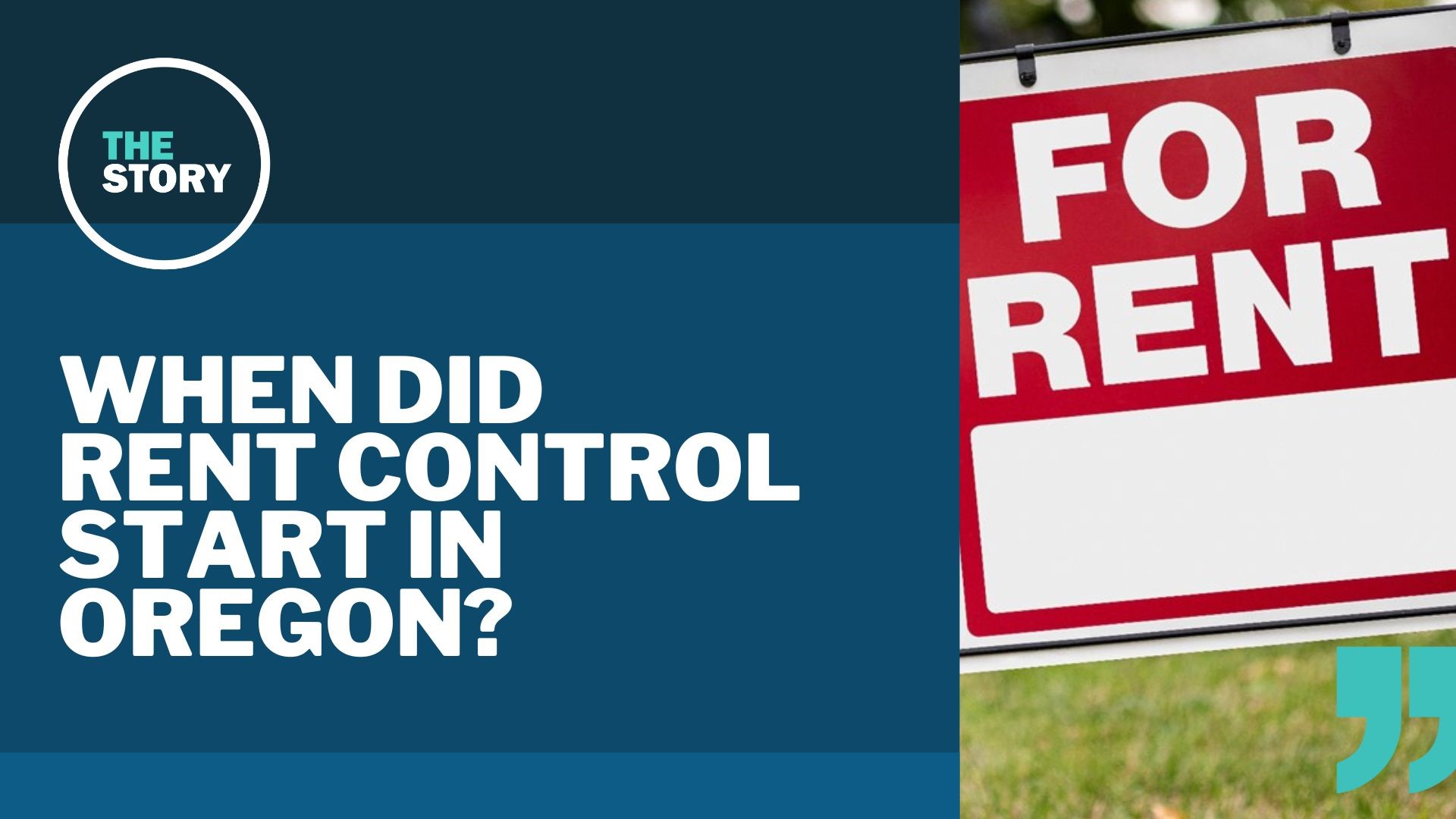SALEM, Ore. — Landlords across Oregon will be allowed to raise rents by up to 14.6% in 2023. It's the biggest rate increase yet since Gov. Kate Brown signed a statewide rent control bill into law three years ago, as inflation soars nationwide.
Before that, Oregon had no rent cap, meaning landlords had no limitations on how much they could raise people's rent. So why did the state adopt the law in the first place, and how much is it really helping tenants?
In 2019, frustration over the growing cost of rental housing hit a boiling point in Oregon. Democratic lawmakers, determined to create a solution, introduced Senate Bill 608. The bill passed the legislature in February of that year.
"It's been described in the press as an anti-gouging bill, and I think that’s a good description for it. Because it prevents some of the worst abuses that we’ve seen in the housing crisis that we’re experiencing," Sen. Ginny Burdick (D-Portland) said when introducing the legislation to the Senate.
Tina Kotek, then-speaker of the House, said the legislation would bring predictability and stability.
"We have seen price gouging in rents. We have seen, I think, a very unfair use of evictions. And by doing this — removing the ability to unilaterally evict people without cause is something we’ve been working on for years. We need to fix that," Kotek said.
The bill was aimed at both rent increases and evictions.
It banned no-cause evictions after the first year unless the landlord was going to move into the unit, change the use of the property or sell to someone who would move into the unit.
If any of those conditions were met, the tenant had to be notified 90 days in advance and, in some cases, be paid one month's rent. Evictions for cause were still allowed.
The bill also capped any rent increase to 7% plus the rate of inflation, calculated by the consumer price index. The rate would be measured from September through August and announced in September.
Rental units less than 15 years old would be exempt until they hit year 15.
The bill had the backing of several community groups, including the Community Alliance of Tenants. Katrina Holland, then-executive director of the nonprofit, testified in support of the legislation in 2019 with her daughter by her side.
"There is no new information, no angle to take or special words I can conjure up that can convey the myriad of tragedies that have transpired and continue to transpire for hundreds of thousands of renters in Oregon," Holland said. "No matter how we talk about it, how we phrase it, the fact of the matter is that under current law, through the years of no-cause evictions and unlimited rent increases, half our population can have their housing stability decided by someone else even if they've done all the right things."
But it was clear during the hearing that the 7% increase plus the cost of living was a generous compromise. A report by the company CoStar showed Oregon rents had only jumped above 7% twice between 2001 and 2019. The new law allowed 7% plus the CPI.
Sybil Hebb with the Oregon Law Center made that point clear to lawmakers.
"What the bill provides is protection against rent gouging and rent spiking without notice. So landlords, under the bill, would be able to set rents however they liked at the beginning of a tenancy. The tenant agrees to the rent, moves in and at that point the provisions of the bill would kick in and rent increases would be allowed as the landlord chooses up to a cap of 7% plus the consumer price index as it pertains to the Western region of the United States."
Alissa Keny-Guyer, then-chair of Human Services & Housing, made it clear the numbers were much higher than some other cities had set for rent control.
"I just might make the point that the San Francisco rent cap is 0.6% of the CPI, which last year I believe came to 1.5%. It's very, very different from the 7% plus current CPI of around 3%," Keny-Guyer said.
Few lawmakers objected.
Rep. Jack Zika (R-Redmond), a realtor, worried about unintended consequences of the legislaiton.
"From the studies I've seen, it's actually reduced the supply. In San Francisco, it was 15%. And a lot of those were condominium conversions. So you could make the argument that rent control can cause gentrification," Zika said.
The bill sailed through the Senate and the House — which is not to say everyone was on board.
Margot Black, co-founder of Portland Tenants United, protested the allowed annual rent increase was much too high.
"I support the passage of the bill frankly, but very, very reluctantly. And only because I have been told from insiders in Salem this is the very best we can get. I am very disappointed that it's the best we can get."
Before the end of February 2019, Gov. Brown held a ceremony to celebrate the bill's passage.
"This is a groundbreaking piece of legislation, as we are the first state in the nation to enact this level of protection for our renters. The bill is a critical tool for stabilizing the rental market throughout the state of Oregon," Gov. Brown said.
The governor was asked why the rent increase cap was so high.
"I think like a lot of public policy measures, this is a compromise. And folks came to the table and they worked out a solution that they thought would work for the rental housing market."
Eddie Passadore, a landlord, was at the bill signing and agreed it was a compromise that would not hurt industry.
"I think its a good compromise. It's definitely not an industry killer. So I don't see any objection to what we currently have going."

